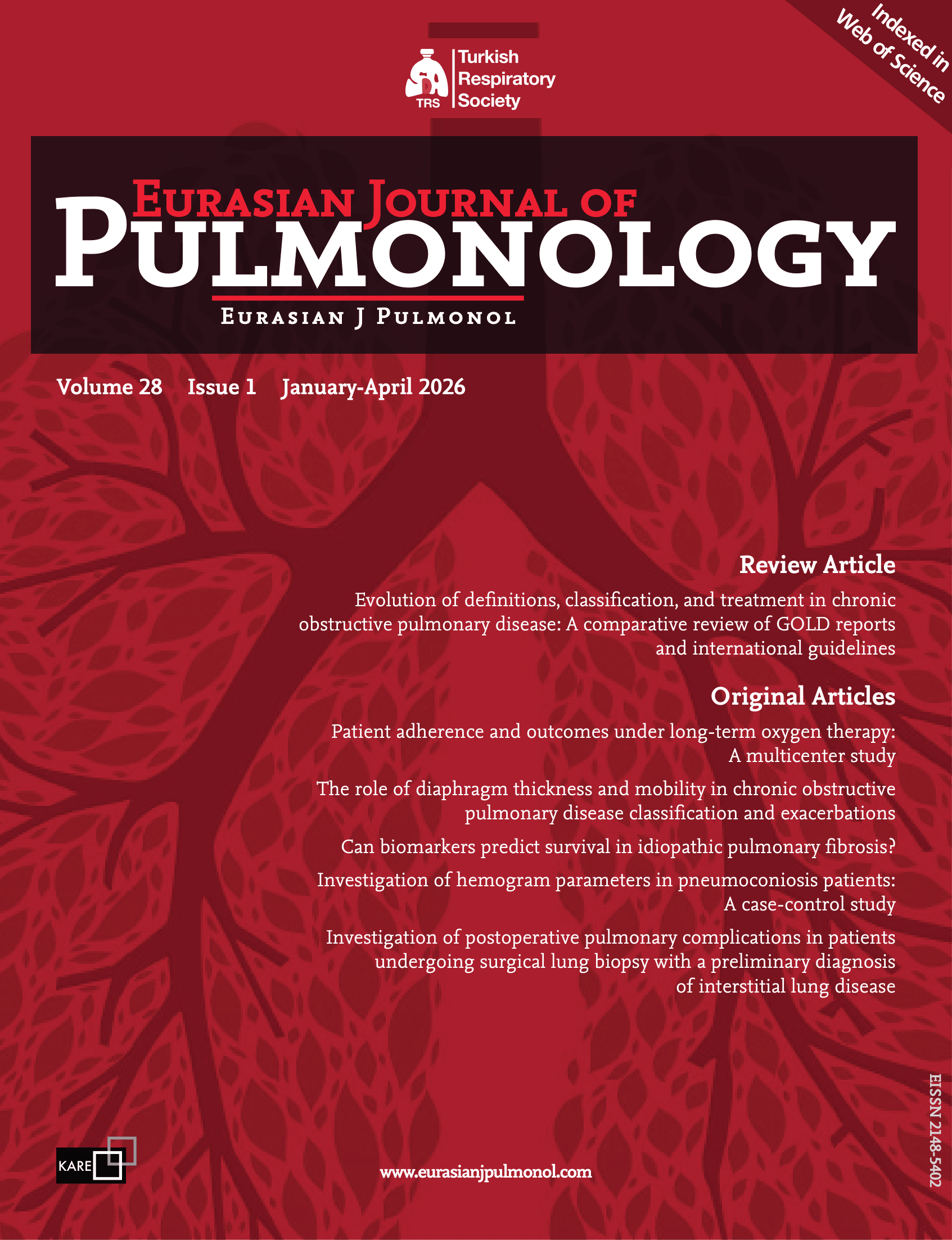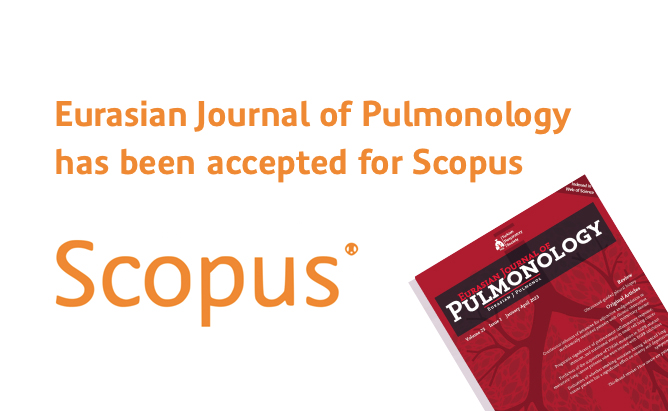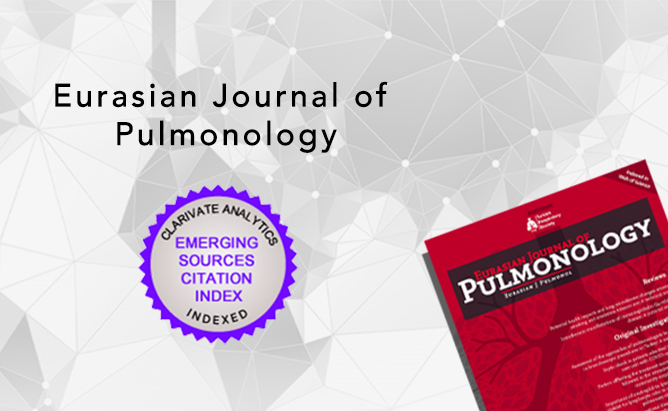2Department of Rheumatology, Aydın Adnan Menderes University Faculty of Medicine, Aydın, Türkiye
Abstract
BACKGROUND AND AIM: Idiopathic pulmonary fibrosis (IPF) is a lung disease of unknown etiology, characterized by inflammation. Ratios involving neutrophils, lymphocytes, monocytes, and platelets reflect chronic inflammation more accurately than individual cell counts. Biomarkers play a critical role in assessing disease risk, enabling early diagnosis, predicting prognosis, and monitoring treatment response. This study aimed to evaluate hematological indices as markers of inflammation in newly diagnosed IPF patients and to compare these indices with those in healthy controls and patients receiving antifibrotic therapy.
METHODS: We assessed the demographic characteristics and hematological parameters of 55 IPF patients undergoing antifibrotic treatment and 20 healthy controls. Novel hematological indices were evaluated at diagnosis and after one year of treatment.
RESULTS: There were no significant differences in age or gender between the IPF group and the healthy controls. Pre-treatment inflammatory markers were significantly elevated in IPF patients compared to healthy individuals. However, no significant changes in these markers were observed before and after antifibrotic therapy.
CONCLUSIONS: Neutrophil counts, neutrophil-to-lymphocyte ratio, systemic inflammatory index, systemic inflammation response index, and the aggregate index of systemic inflammation may serve as useful inflammatory and prognostic markers in IPF. Given that these parameters are part of routine laboratory investigations, their application is simple, cost-effective, and practical for clinical follow-up during antifibrotic treatment.




 Şule Taş Gülen1
Şule Taş Gülen1 




